| Time |
Agenda |
|
08:00
–
15:00
|
|
|
|
|
|
10:00
–
10:05
|
Presenter
|
|
10:05
–
10:10
|
Speech by
|
|
|
|
|
10:10
–
11:20
|
Leading without a Title
Renowned global leadership expert, Robin Sharma, asserts that leadership is not limited to specific positions or titles but is a human characteristic that can be cultivated by anyone, anywhere. He believes that within each individual, there may be dormant leadership qualities that need to be awakened, refined and honed by boosting self-awareness, taking responsibility and avoiding the habit of making excuses or blaming others.
However, merely holding titles or occupying leadership positions do not automatically make an individual an impactful leader. In fact, many people in such positions may lack the necessary attributes, leading to failure due to their inability to effectively lead teams. On the other hand, individuals who exhibit leadership qualities without formal titles often demonstrate their capacity to tackle challenges head-on.
In this IGCF session, Robin Sharma, a motivational speaker and CEO of "Sharma Leadership International” will share valuable insights on how to inspire employees to develop a leadership character. Drawing from his extensive experience advising senior leaders and CEOs in the corporate world, he will offer practical advice on unlocking the leadership potential in each and every person in an organisation.
|
|
|
Focusses
- What is a leading character?
- How can we cultivate and nurture our leadership character?
- What is the significance of personal leadership in achieving success?
- Is leadership intertwined with innovation and creativity?
- The role of a leadership personality in inspiring employees.
- The importance of leadership in attaining accomplishments and success.
|
|
|
Speaker
|
|
11:23
–
11:43
|
|
|
|
How do knowledge technologies contribute in shaping the future?
With the communications revolution that the world has witnessed since the beginning of the new millennium, there has been a radical transformation in the concept of learning and a change in the role of academic and educational institutions. Employment opportunities shifted from valuing degrees to valuing competencies and skills, leading to the concept of "lifelong learning" and opening up opportunities for alternative and complementary learning options beyond schools and universities.
This development has created new opportunities for those deprived of access to high-quality education, unable to afford the costs of universities, transportation, and living expenses. They can now acquire new knowledge and skills that serve their professional future and intellectual aspirations. Pioneering digital platforms have emerged, offering sciences, arts, humanities, and skills to learners from different countries, transforming from innovative projects into sustainable solutions to overcome educational challenges worldwide.
In this talk of the International Forum on Government Communication, attention is drawn to the fact that more than 263 million children, teenagers, and young people around the world are out of school, either due to lack of educational opportunities or due to dropouts after enrollment. The session reexamines the impact of the COVID-19 pandemic on alternative education options and distance learning, discussing successful experiences that have brought about a transformation in the concept of learning. It also explores the power of effective communication in raising awareness of the need to change education and integrate millions of children into the educational journey without the necessity of building new schools.
|
|
|
Focusses
- How can governments create successful communication strategies to address children in the 21st century? What are the difficulties and obstacles that modern technology can alleviate for education?
- What will the schools of the future look like, and is it possible to make knowledge acquisition accessible to all children worldwide?
- What available solutions can elevate education, and does its proliferation pose a risk to children's ability to acquire knowledge?
- How can a growing global momentum be created around the necessity for radical change in traditional educational systems?
|
|
|
Speaker
|
|
|
|
|
11:46
–
12:06
|
Creative Sustainability: New Wealth Paradigms
The speech will be delivered by Ms. "Isatou Cissay". Cissay is an activist and social entrepreneur from Gambia, known in her country as the "Recycling Queen."
She initiated the movement called "One Plastic Bag" to teach women the skills of recycling plastic waste and transforming it into products that generate income for families, showcasing a clear demonstration of how resources can be turned into assets that benefit communities and support sustainable livelihoods.
Under Cissay's management, the recycling movement expanded to reach major cities in Gambia, establishing educational and recycling centers simultaneously. Her inspiring story has earned her international recognition, with news agencies sharing her journey.
|
|
|
Focusses
- Introducing Cissay's personal experience and its impact on the community.
- How one person's idea can change the destinies of societies and pave the way for others to bring about change.
- The impact of Cissay's experience on development through resource investment and recycling.
- Environmental and economic impact.
- The challenges Cissay faced and how she overcame them.
- The role of governments in supporting development pioneers and promoting their experiences.
- A message from Cissay to women worldwide.
|
|
|
Speaker
|
|
|
|
|
12:09
–
12:29
|
Guiding the Secure Global Journey
Amidst daily preoccupations, we often overlook crucial questions that hold the key to our success or failure. Such as, where do our footsteps lead? What destiny befalls global endeavours? How is the march toward the 17 ambitious 2030 goals quantified?
At the heart of these questions lies a singular focal point: data and its correlating indicators and measurement tools. Governments and organisations around the world demand reliable tools rooted in meticulous research and analysis to guide policies towards these grand milestones. As a result, the United Nations carefully crafted 244 indicators driving 17 overarching goals, from which 169 targets emerge. These include “No Poverty,” “Zero Hunger,” “Gender Equality,” “Affordable and Clean Energy,” and other widely adopted indicators today.
In our era, data, measurement tools, and outcome indicators have transcended government and essential international organisations. They are now essential for institutions, corporations, and organisations across society, as well as for custodians of various forms of communication, particularly government. Without them, our trajectory remains obscured, our investments in time unclear, and crises may deepen.
In this inspirational talk, Counselor Andrew Rzepa, partner at Gallup and public sector executive director for Europe, the Middle East, and Africa, a luminary who has played a pivotal role in crafting numerous global indicators, particularly the “No Hunger” indicator.
Focusses
- Using the endorsed international indicators, what progress has the world made towards achieving core objectives in poverty alleviation, hunger eradication, unemployment mitigation, and resource sustainability?
- Will 2030 mark the triumphant declaration of achieving the sustainable development goals, or will the journey require a longer timeframe?
- How do data and indicators strengthen government and societal efforts to strategically allocate resources along their developmental trajectories?
- How is the methodology developed to create indicators for overarching global goals that encompass diverse communities with varying capabilities?
- Based on data and indicator outcomes, what are the leading global models for resource and wealth allocation?
- Can media and government communication amplify support for global and governmental endeavours to strategically invest resources to achieve their objectives?
|
|
|
Speaker
-
Counselor Andrew Rzepa
 Partner at Gallup and public sector executive director for Europe, the Middle East, and Africa
Partner at Gallup and public sector executive director for Europe, the Middle East, and Africa
|
|
12:29
–
13:00
|
|
|
|
|
|
13:00
–
13:45
|
Aristotle V.S GPT: Reformulating the Education Equation
As education technology continues to take big strides, there is a debate surrounding the impact of artificial intelligence (AI) and other modern technologies on students' critical thinking skills. For instance, Gina Lyle, spokesperson for the New York City Department of Education, argues that while AI tools provide quick and easy answers, they fail to foster the essential skills needed for academic and lifelong success.
Education technology companies like Duolingo and Quizlet have integrated OpenAI technologies into their applications, influencing the future of education. This IGCF session explores the balance between embracing new technologies and the notion of the well-informed, skilled, and inspired universal teacher, drawing inspiration from Aristotle's role as a student of Plato and teacher of Alexander the Great. It also examines government strategies for driving educational transformation and effectively leveraging artificial intelligence and innovative communication options.
|
|
|
Focusses
- How can we strike a balance between traditional educational values and the integration of new technologies to meet the needs of the contemporary world?
- How can governments effectively communicate with citizens on educational matters and engage them in the transformation process?
- What role does government communication play in promoting the adoption of modern and innovative technology in the education sector?
- How can teachers be prepared and developed to effectively navigate a technologically advanced educational environment?
- How can governments emphasise the importance of inclusive teaching in the age of AI and digital learning?
- What is the result of using modern technologies and artificial intelligence in both government and private educational institutions?
- The future vision of educational systems and institutions.
|
|
|
Speakers
-
Guido Bertucci
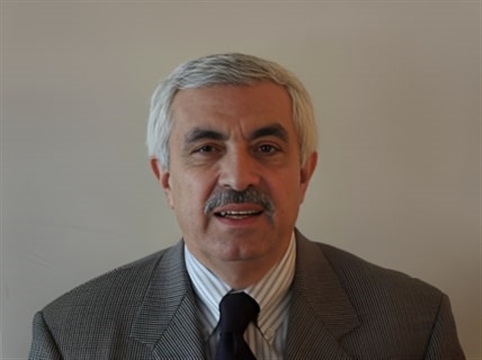 Executive Director of “Governance Solutions International” Amb. Marco A. Suazo - Director UNITAR New York Office
Executive Director of “Governance Solutions International” Amb. Marco A. Suazo - Director UNITAR New York Office
-
Dr. Inhyok Cha
 Digital Twin TF team leader, of the Presidential committee on the Digital Platform of the Republic of Korea
Digital Twin TF team leader, of the Presidential committee on the Digital Platform of the Republic of Korea
-
Geoffrey Alphonso
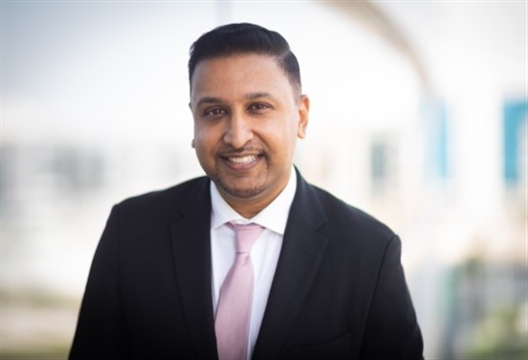 CEO of Alef Education
CEO of Alef Education
-
Mr. Osama El Gohary
 Prime Minister Assistant and IDSC Chairman (Egypt)
Prime Minister Assistant and IDSC Chairman (Egypt)
|
|
|
Session moderator
|
|
13:45
–
13:50
|
|
|
13:50
–
14:35
|
|
|
|
“Global Resources in an Era of Change: Balancing Solutions and Sustainability
In a world of abundance, it's easy to fall into the trap of excessive consumption. Starting from material goods like clothing and fast food, and extending to media, we often consume without appreciating the true value of what we're using. We read quickly, eat quickly, watch quickly, and then move on to the next available content. These grand and massive consumption behaviors can indirectly harm the quality of our perception of things and diminish our ability to fully enjoy life's intricacies.
While navigating the labyrinth of immense human consumption every day, we discover that boundless human ambition has led to the inflation of consumption at the expense of the Earth we inhabit. The world we live in is struggling under the weight of our excessive consumption of resources and energy. Unfortunately, we may have reached the edge of the abyss, where radical change might be the only option available to us.
In this session, we delve into the effects of overconsumption on individuals and society, as well as exploring ways to regain control over our lives through deeper and more conscious thinking or through simplification. We also discuss how to navigate digital and material abundance while preserving mental health, psychological well-being, and a mindful awareness of our surroundings.
|
|
|
Focusses
- Highlighting the global consumption rate on an annual basis
- How can government communication play a crucial role in raising awareness and promoting behaviour change towards sustainable consumption?
- How can the philosophy of simplification be integrated into government policies and communication strategies to address overconsumption?
- What role can governments play in addressing the repercussions of excessive consumption on the environment and natural resources?
- What actionable steps can be taken to ensure a sustainable and balanced use of global resources?
- The experience of the wheat farm in Mleiha, Sharjah and its impact on the emirate's production?
- The impact of increasing demand or consumption levels beyond the resources and products provided by the state?
|
|
|
Speakers
|
|
|
Moderator
|
|
14:35
–
14:40
|
|
|
11:00
–
11:35
|
|
|
|
Sustainable Communication, Change Strategy
The ongoing transformations necessitated the creation of innovative tools and methods in communication plans within the strategic directions towards sustainability and to meet the requirements of responsible communication as a support tool for development, environmental preservation and addressing the repercussions of climate change.
Given the role of communication in promoting visions of sustainability, its inclusion within the concept of communication contributes to adopting the idea of change for the better to achieve development and develop societies.
Focusses
- The concept of sustainability and its themes and applications
- Sustainable development goals
- Offering community and environmental initiatives
- Offering more specialised visions in the context of environmental issues
- Raising issues and challenges of common interest with specialised institutions
- Presenting the visions of the Emirate of Sharjah in preserving the environment
- Developing ideas for a more sustainable future
- Participate in drawing up a plan to disseminate the initiatives in the media and educate the community
- Develop outputs and recommendations to achieve goals
|
|
|
Speakers
|
|
|
|
|
11:35
–
12:10
|
Discussion Session: Tomorrow’s Media - from the Perspective of Future Generations
The session features a lively and engaging discussion amongst members of future generations about tomorrow’s media. The session would be hosting a group of graduates of the Ithmaar Media Training Program for children and youth, organised annually by the Sharjah Press Club, about the future of media in general and digital media in particular. The session also showcases media experiences for young people participating in the dialogue.
|
|
|
Speakers
Graduates of Ithmaar Media Training Program for Children and Youth
|
|
|
Organisers
|
|
|
|
|
12:10
–
12:45
|
New media and community sustainability
The "New Media and Community Sustainability" workshop discusses various forms of media, with a focus on new media, and how it plays an important role in confronting negative phenomena that are negative and disturbing to society. It does so by highlighting the positive side of the customs and traditions that govern any society with the aim of achieving sustainability that protects society from negative external influences.
Focuses
- What is the new media and its various categories?
- The contribution of the new media to the development and sustainability of society
- Recommendations to achieve the media and community sustainability.
|
|
|
Speakers
|
|
|
Organizer
Training Department - Sharjah Government Media Bureau
|
|
|
|
|
12:45
–
13:45
|
"Accept the challenge"
Focusses
- Positive communication and the impact of youth on family life (Communication with parents:between reality and aspiration).
- Enhancing the methodology of participation among family members.
- Daily practices and their effects on conserving resources.
- Showcasing successful practices .
- Creating the plan and practicing positive pressure on the family and the external environment.
|
|
|
Speaker
|
|
|
Organizer
Family Development Department and Branches
|
|
|
|
|
13:45
–
14:45
|
" Districts Councils .. The link between government and society"
Residents of a neighborhood are closer to understanding its realities and challenges, and are more capable of effectively addressing them. Therefore, constructive communication between local residents and the government opens new horizons for achieving advancements in the quality of life and service levels for the population, achievements that theoretical plans might not fulfill.
In the District Councils, a vibrant picture of integration and collaboration between the government and the community comes to life. Creative energies and skills are invested in serving their society, contributing to the dissemination of social and cultural awareness in coordination with relevant authorities in the Emirate.
The Sharjah initiative in establishing District Councils exemplifies a visionary governmental approach to enhancing social cohesion by strengthening ties between neighbors and residents of the same residential area. In this session, we will explore the role of these councils in creating platforms for dialogue and interaction between community members and the government, and serving as the voice of citizens, reflecting their needs and aspirations. We will delve into how these councils promote a culture of participation and societal responsibility, strengthen social bonds, and encourage volunteering, creativity, and innovation.
Focusses
- What is the role of District Councils in enhancing social cohesion and cultural diversity, and how do they contribute to bridging distances between community members?
- How does modern technology impact these councils? Does it enhance their role and serve their objectives?
- The role of District Councils in developing infrastructure, public services, and monitoring citizens' needs, along with their mechanisms for communicating with relevant authorities to convey citizens' voices and provide suggestions.
- How can District Councils support innovative and creative initiatives aimed at solving problems or benefiting society? How can they encourage the launch of such initiatives, provide resources, expertise, and partnerships to achieve them?
- The role of District Councils in promoting environmental and health awareness, elevating the importance of environmental and health preservation, and highlighting significant campaigns and activities that promote environmentally friendly and healthy behaviors.
- The role of District Councils in human capital development and their contributions to enhancing the efficiency and skills of community members. Do they have initiatives in collaboration with relevant authorities to provide learning, training, and qualification opportunities, facilitating citizens' access to suitable employment?
|
|
|
Speakers
|
|
|
Organiser
Districts and Villages Affairs Department, Sharjah
|
|
|
|
|
09:00
–
17:30
|
Communication for Success for Young Government Leaders
In the efforts to build a government capacity for the future, leadership will play a pivotal role. But a new generation of leaders will have to be developed, possessing different competencies and capabilities which will enable them to bring their organization up to the challenges of the 21st century.
In order to work effectively and constructively in an organization, particularly in a position of leadership, communication skills are not only useful, but also essential.
Good communication abilities are an important tool to manage people, to work productively in a team, to solve complex problems and to resolve conflict.
Effective leaders are good listeners and communicators and are able to motivate people and promote a culture of engagement.
The utilization of modern means of communication, requires adapting approaches, methods and techniques to ensure that they actually enhance and do not hamper the effectiveness of communication.
Some of the communication abilities are innate, but many of them require learning and development. Therefore, training to improve communication skills is an important component of leadership development.
|
|
|
Focusses
- Active listening and communication
- How to communicate effectively and constructively in a team
- Communication and negotiation
- Developing emotional intelligence to work constructively with others
- Problems Solving
- Conflict management
- Information sharing
- Stress management
- Presentation skills
- On-line communication
- Understanding the importance of using and sharing Data
- Dealing with difficult media interviews
- Dealing with Digital Media
- Storytelling
|
|
|
Trainer
-
Guido Bertucci
 Executive Director of “Governance Solutions International” Amb. Marco A. Suazo - Director UNITAR New York Office
Executive Director of “Governance Solutions International” Amb. Marco A. Suazo - Director UNITAR New York Office
-
Amb. Marco A. Suazo
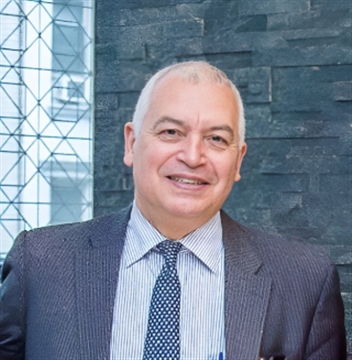 Director UNITAR New York Office
Director UNITAR New York Office
|
|
|
Organiser
United Nations Institute for Training and Research (UNITAR)
|
|
|
|
|
10:00
–
14:00
|
AI Skills Camp
Artificial Intelligence Skills Camp (AISC), is the first creative conclave of its kind in the UAE, to teach and impart applied artificial intelligence skills to students and Gen Z.
The International Government Communication Forum, 12th edition, being held in September 2023, will for the first time host the Artificial Intelligence Skills Camp (AISC).
The Artificial Intelligence Skills Camp (AISC) aims to:
The Artificial Intelligence Skills Camp (AISC) is the first creative environment of its kind in the UAE aimed at imparting practical AI skills to students and youth. The Camp is an initiative to build in students and youth essential knowledge of basic AI concepts and practical applications, and how AI may be integrated into our daily lives. The students participating in the Camp can acquire the knowledge and skills necessary to produce applications that can be used in government administration and services and for creating media content such as videos, texts, news reports, photographs, short films, documentaries and animation films using AI. With the help of AI, students can create and use content that can be integrated into various economic sectors, especially in supporting the digital economy for governments. The Camp offers trainees a rare opportunity to gain a comprehensive understanding of the importance of AI and the unfolding future of technology in the Arab world and beyond.
|
|
|
Focusses
- Fundamentals of artificial intelligence applications and content creation
- Content creation in Metaverse
- Creating avatars using artificial intelligence
- Creating cartoons using artificial intelligence
|
|
|
Trainers
-
Dr. Mohamed Abdulzaher
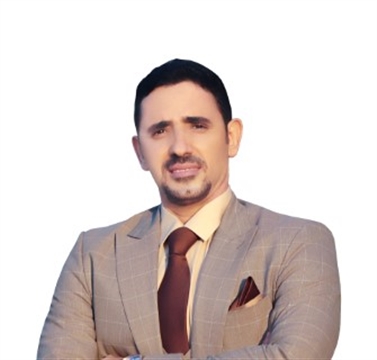 CEO of Artificial Intelligence Journalism for Research and Forecasting (AIJRF)
CEO of Artificial Intelligence Journalism for Research and Forecasting (AIJRF)
-
Dr. Sheren Mousa
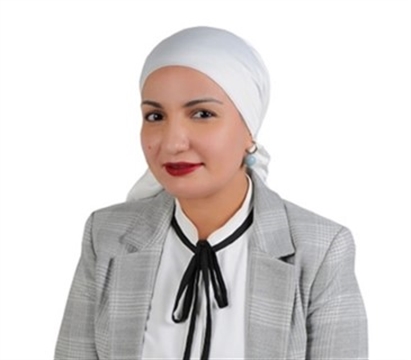 Consultant, and academic trainer at Artificial Intelligence Journalism for Research and Forecasting (AIJRF).
Consultant, and academic trainer at Artificial Intelligence Journalism for Research and Forecasting (AIJRF).
-
Dr. Munira Mohammad Alrahmani
 Certified trainer at the Artificial Intelligence Journalism for Research and Forecasting (AIJRF)
Certified trainer at the Artificial Intelligence Journalism for Research and Forecasting (AIJRF)
-
Shadi Diab
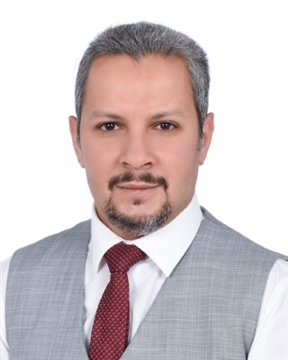 Media consultant at Artificial Intelligence Journalism for Research and Forecasting (AIJRF).
Media consultant at Artificial Intelligence Journalism for Research and Forecasting (AIJRF).
|
|
|
Organiser
The Artificial Intelligence Journalism for Research and Forecasting (AIJRF)
|
|
|
|
|
09:00
–
14:50
|
Leveraging Behavioural Insights for Better Resource Management
Government communications programs have a critical role to play in developing thriving communities that are resilient to future crises; however, existing communications campaigns often fall short. An understanding of human behaviour, informed by empirical research in psychology, economics and other behavioural sciences can make communications more effective. Worldwide, more than 200 public bodies are leveraging behavioural insights to craft and communicate better policy. Behavioural insights enable governments to steer human behaviour often using the power of suggestion to influence people’s decisions — rather than bans or fines. They can be used to encourage people to make better choices for themselves, and society while maintaining freedom of choice.
The behavioural insights sessions will introduce participants to evidence-based lessons from behavioural science and give them the skills to apply them in their work.
Viewing resource management through a behavioural lens will provide participants with a new perspective on the role and potential of government policies and communications in this space. BIT will draw on our expertise across these areas to deliver the expert panels and develop behavioural challenges for the BI programme that will showcase the application of BI to improve resource management.
The Behavioural Insights Programme and panels will offer conference attendees new perspectives on how to leverage BI to improve their communication strategies and/or policy initiatives to manage resources. Participants will leave the sessions equipped with a range of practical methods and tools that can be used to apply behavioural insights to improve policy outcomes.
Focusses
The concept theme of “Better resource management for stronger community development” will consider how resources can be managed across four pillars:
- Food and water security
- Natural resources and environment
- Knowledge and education
- Industry, investment and trade
|
|
|
Trainers
|
|
|
Organisers
|
|
|
|
|
12:00
–
13:00
|
“Government Communication Project in the Emirate of Sharjah.. The Reality, Practices, Challenges, Future Prospects “
Given the recent developments in government communication, in terms of challenges facing government communication entities and their employees, the tasks and responsibilities they handle and the established practices, the review of the reality, challenges, and future prospects of the sector is necessary and vital in order to boost the effectiveness and efficiency of government communication professionals in handling the responsibilities entrusted to them.
This project focuses on studying the reality of government communication practices in government departments and agencies in the Emirate from a new scientific and cognitive perspective that monitors, analyses, and evaluates the reality, applications and practices of government communication in the departments and agencies of the Emirate of Sharjah, in all aspects, and foresees future prospects.
The study is not limited to evaluating the effectiveness and efficiency of the human element in charge of government communication tasks, as it stems from the perception that a proper scientific assessment of a specific case, issue, or topic requires an analysis of the general context of this phenomenon.
Any objective vision aimed at studying the state of government communication in a country or emirate requires a comprehensive understanding of the work environment of government communication departments in organisational, administrative and planning aspects, methods, models and strategies used, and the elements of government communication used is necessary, in addition to an analysis of government communication products and messages and how to formulate media messages, their quality, and public attitudes towards the performance of government communication departments.
The study must also measure the impact of practices and activities of these departments while not neglecting relevant public communication posts.
The societal character of these departments also needs to be examined according to specific measurement indicators aimed at monitoring the achievements, analysing their reality, indicating strengths and weaknesses in their performance, rationalising their work paths, and exploring prospects for their future development.
Focusses
- The study to determine the nature, quality, characteristics, qualifications and skills of government communication practitioners.
- The study on evaluating the effectiveness of the use of social media by government communication departments in the Emirate in performing their work.
- The study to identify media professionals and journalists' perceptions about the performance of government communication departments and the quality of relations between them.
- The study of those in charge of social communication in government organisations.
- The study of senior officials of government communication departments and their perceptions of the reality, challenges and future of government communication.
- The study on evaluating the media content and communication messages that are produced and designed by the government communication departments in the Emirate of Sharjah.
- The study of analysing public attitudes and perceptions vis-à-vis the performance of government communication departments.
- Reports determining how to develop indicators for evaluating the performance of government communication departments and developing work guides and guidelines in government communication tasks.
- The study of the most prominent organisational and marketing initiatives, programmes, and practices undertaken by government communication departments.
|
|
|
Speaker
|
|
|
Organizer
Sharjah Government Media Bureau (SGMB)
|
|
|
|
|
|
Sustainability seminar
|
|
|
Activity
|
|
13:00
–
13:45
|
Discussion session: A Balanced Today.. for a Greener Tomorrow
The intricate interplay between the energy, mining, and heavy industries sectors, and their relationship with sustainability and climate considerations, might seem paradoxical at first. On the surface, it appears that these domains are at odds. Yet, upon closer inspection, a different picture emerges. As humanity advances with progress, innovation, and exploration, these sectors become essential for meeting fundamental human needs that shape our daily lives.
In this context, the criticism often leveled against these sectors might be seen as somewhat misplaced. Envisaging a world without their role is a challenge that defies practicality. What remains essential is fostering collaborative alliances between industry leaders in energy, mining, and manufacturing, and those who influence policy, government decisions, and advocate for sustainability. This collaboration, marked by various forms of cooperation and backing, bears the potential to strike a harmonious equilibrium. Contemporary scientific breakthroughs present an array of solutions to mitigate the environmental repercussions of energy consumption, industrial practices, and mining activities.
The global landscape abounds with pioneering instances wherein climate and environment preservation have been deftly executed alongside the relentless consumption of energy, mining operations, and industries. Moreover, scientific research and studies continue to proffer innovative solutions hinging on technology to fortify climate preservation and herald sustainability. In this session, the International Government Communication Forum will explore the complex interactions among mining, energy, and industry in relation to environmental and climate impacts. The conversation will revolve around practical approaches, focusing on the following key aspects:
Focusses
- Can the utilization of conventional energy persist through the assimilation of emissions-reduction strategies and mitigation of environmental harm?
- What is the extent of non-renewable energy's contribution to the disruption of ecological diversity, and how can it be rectified?
- To what extent has the transition towards renewable energy advanced?
- Are substantial endeavors underway in the region to pivot towards sustainable industries and the utilization of recyclable raw materials?
- What blueprints outline the region's future energy production, consumption, and manufacturing trajectories—from raw material extraction to end-user consumption?
- How can governmental communication and media be utilized to alleviate the pressure on energy consumption and related products?
- What global examples offer the best practices for harmonizing sustainability, responsible energy consumption, and the management of heavy industrial byproducts?
|
|
|
Speakers
|
|
|
Moderator
-
Nevine Saqr
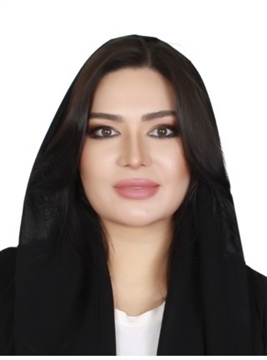 Media Professional at Sharjah Broadcasting Authority
Media Professional at Sharjah Broadcasting Authority
|
|
|
Activity
|
|
13:45
–
14:05
|
Discussion Session: Government Support Impact on Small and Medium Enterprises' Sustainability
Sharjah SME "Ruwad" participation in the forum includes hosting and managing a panel discussion titled "Results of the Study on the Impact of Government Support on the Sustainability of Small and Medium Enterprises (SMEs)." The center conducted this study on a sample of its member entrepreneurial projects, aiming to assess the role of government support and its influence in creating an enabling environment for startups and nurturing the projects of young citizens.
The session will highlight several crucial aspects that impact the establishment, launch, and management of small and medium enterprises. It will also emphasize the extent to which these enterprises have benefited from the array of services provided by “Ruwad”. This includes showcasing guidance and counseling services through various targeted training programs, aimed at enhancing the skills of young entrepreneurs and empowering them with knowledge to initiate their ventures and contribute to the national economy.
Moreover, the session will address the impact of technical and financial consultations offered by “Ruwad” to enhance project development. It will also delve into the exemptions from various government fees, facilitating business operations and reducing initial establishment costs for young entrepreneurs. Additionally, the discussion will explore the impact of financing provided to the projects covered in the study's sample, in terms of providing the necessary financial resources for establishment and growth.
|
|
|
Speakers
|
|
|
Moderator
|
|
|
Organiser
Sharjah Foundation to Support Pioneering Entrepreneurs (RUWAD)
|
|
|
Activity
|
|
14:05
–
14:25
|
Speech: Food security...a successful story from the UAE to the world
|
|
|
Speaker
|
|
|
Organiser
Ministry of Climate Change and Environment
|
|
14:25
–
14:45
|
Activity: Speech: Immersive Media as a Communication Tool to Engage Youth on Climate Issues
In this era of instant communications, information, and modern technologies, the media has come to exercise the most influential impact on the values, ethics, and behaviours of young people. Social networking sites, AR/VR/XR technologies, and artificial intelligence media have begun to have a clear impact on the production of content and the effective delivery of its messages to the technology generation. This is why it makes sense to engage the youth on climate issues, delving into the future of media mechanisms to build content capable of addressing youth and touching them at their core for the future and well-being of the planet.
Focusses:
- What new advancements in AR/VR/XR can help deliver more impactful content?
- How can this new technology engage youth onclimate issues?
- Talk about my COP28 XR experience;
- What are the implications of using such technologies and how does the message change/impact?
- Use of immersive tools by governments to activate youth’s engagement and deliver a powerful message;
- What are future disruptive communication technologies that could change the way we communicate with youth about important topics?
|
|
|
Speaker
-
Dr. Sohail Dahdal
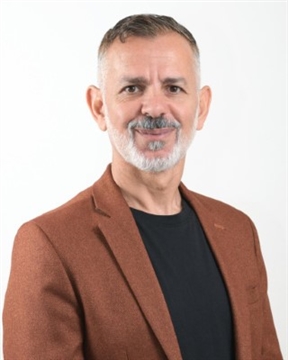 Head, Department of Mass Communication, College of Arts & Science (AUS)
Head, Department of Mass Communication, College of Arts & Science (AUS)
|
|
|
|
|
|
Department of Agriculture and Livestock Resources in Sharjah
|
|
|
Activity
|
|
09:30
–
10:30
|
Discussion session on Sharjah's Agricultural Experience
The Maliha wheat farm is considered one of the most important sustainable agricultural projects in the UAE, as it is a new pattern in achieving self-sufficiency, and raising production rates to ensure that the necessary quantities are met, to cover the needs of the emirate of Sharjah, which will provide about 15,200 tons of wheat after the completion of the project, which covers an area of 1900 hectares during the current year, and this quantity represents the emirate's consumption during the year from outlets for wheat and flour importers, this quantity produced will replace what is imported.
Focusses
- The vision of His Highness The Ruler of Sharjah in providing safe food
- Sharjah's experience in wheat farm and achieving sustainable agriculture.
- The most important challenges faced by the experiment and ways to overcome them.
- The use of modern technologies in the wheat farm.
|
|
|
Moderator
|
|
|
Speakers
|
|
|
Activity
|
|
12:00
–
12:30
|
workshop on Sustainable development of livestock.. "Integrated dairy farm"
|
|
|
Trainer
-
Dr. Mariam Almaeeni
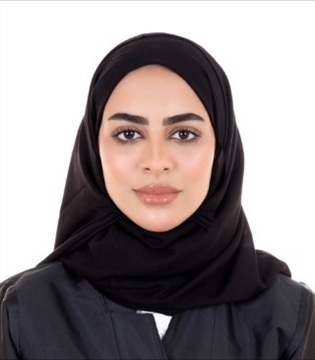 Head of the Animal Wealth Department - Department of Agriculture and Livestock, Sharjah
Head of the Animal Wealth Department - Department of Agriculture and Livestock, Sharjah
|
|
|
Activity
|
|
13:00
–
13:30
|
workshop on Sharjah Sustainable Strategy about “Pastures”
|
|
|
Trainer
-
Mariam Aljenaibi
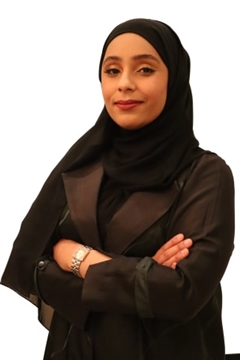 Head, Centre for Innovation and Future Foresight - Department of Agriculture and Livestock, Sharjah
Head, Centre for Innovation and Future Foresight - Department of Agriculture and Livestock, Sharjah
|
|
|
Activity
|
|
14:00
–
14:30
|
workshop Agricultural systems In sustainable greenhouses
|
|
|
Trainer
-
Jawaher Alabdouli
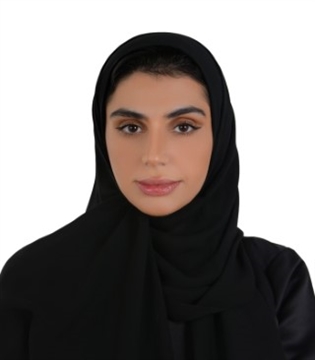 An Agricultural Researcher - Department of Agriculture and Livestock, Sharjah
An Agricultural Researcher - Department of Agriculture and Livestock, Sharjah
|
|
|
|
|
|
Talks shaping communities
|
|
|
Activity
|
|
11:00
–
12:00
|
Prioritizing Wellbeing and Mental Health: A Catalyst for Flourishing Economies and Societies
As per the World Health Organization's 2019 report, an astounding 12 billion productive days are lost annually due to mental health challenges, costing the global economy a staggering $1 trillion in lost productivity. This panel discussion aims to shed light on the importance of governments investing in wellbeing and mental health, as a powerful pathway to fostering flourishing economies and lessening the economic and social burden on governments and economies caused by mental health-related issues.
|
|
|
Focusses
- The relationship and link between wellbeing and mental health and economic outcomes, including workforce productivity, innovation, healthcare costs, and social cohesion.
- The interplay between societies and citizens’ quality of life and their overall well being, including fostering good mental health.
- The benefits of shifting focus towards promoting mental wellbeing, preventive measures, early intervention, as a means to reduce the burden on economies and improve productivity.
- Successful government initiatives and policy frameworks that prioritize and allocate resources for wellbeing and mental health, addressing stigma, promoting awareness, and ensuring accessibility to mental health services.
- The economic returns and cost-effectiveness of investing in mental wellbeing as a national priority, including reductions in healthcare expenditures, increased workforce participation, and improved quality of life indicators.
- The importance of comprehensive and integrated approaches that address the social determinants of mental health, such as education, employment, housing, and community support.
- The impact of social, cultural, artistic, and sports experiences on society's mental health and wellbeing
|
|
|
Speakers
|
|
|
Moderator
|
|
12:40
–
13:00
|
Inspirational Talk: Personal skills: A necessity, not a luxury
One’s ability to harness the full potential of one’s physical environment is a reflection of their finest utilisation of their personal traits, capabilities and human skills. This session will offer practical insight into how personal skills can be discovered and honed to become the best version of oneself.
|
|
|
Speaker
|
|
12:00
–
14:00
|
Activity: Bridging the Soft Skills Gap for Human Capital Development
Soft Skills are centrally important for human capital development and workforce success. The demand for such skills has increased over the past 20 years, yet a Soft Skills “gap” is still noted by many employers around the world, who report that job candidates lack the soft skills needed to fill available positions.
As work continues to evolve due to technology, globalization, and other factors, one thing remains constant: the critical importance of soft skills, often referred to as "skills for life." According to a report from Deloitte Access Economics, soft skill-intensive occupations are projected to make up two-thirds of all jobs by 2030. The same report also states that the growth rate of soft skill-intensive jobs is anticipated to be 2.5 times higher than that of other occupations.
Investing in soft skills plays a key role in elevating employees capabilities, their performance and subsequently their career prospects and success. As a result, they become more valuable assets to their organizations, contributing to institutional and operational success. The cultivation of soft skills extends beyond individual achievements. It creates a positive ripple effect throughout the organization, leading to better resource management, optimized spending, and subsequently supporting economic growth at large.
|
|
|
Focusses
- The current state of the soft skills gap in the job market and identifying the specific skills that are lacking in job candidates.
- The obstacles and barriers faced by organizations and individuals in developing and acquiring soft skills, and potential strategies to overcome these challenges.
- Identifying emerging soft skills that are becoming increasingly important in the rapidly evolving job market, and discussing their implications for human capital development.
- How the development of soft skills contributes to organizational agility and resilience, enabling sustainable growth even during economic downturns
- Soft skills as a human capital and their direct/indirect influence on the growth of industries and economies at large
- The role of government policies and initiatives in promoting and supporting the development of soft skills in the workforce.
- How advancements in technology, automation, and remote work impact the demand for soft skills and how individuals and organizations can adapt to these changes.
|
|
|
Speakers
|
|
|
Moderator
|
|
|
Organizer
Department of Statistics and Community Development, Sharjah
|
|
10:00
–
15:00
|
|
|
|
Researchers
A qualitative initiative that was launched by the International Government Communication Centre during the eighth session of the IGCF in 2019 with the aim of providing knowledge-related content and a database for all matters related to government communication such as research, studies, books, references and global best practices. It seeks to become an essential reference for workers, researchers and scholars in this field as well as being a forum for exchanging knowledge and research to ensure the development of government communication domestically, regionally and internationally.
The "Researchers" platform includes several academic and knowledge-related activities, as well as a presentation of the International Government Communication Centre's latest publications and a discussion of books on government communication issues or topics related to the IGCF's themes.
|
|
|
Platform Goals
- Provide an open forum for students at communication and media faculties (in state universities) to discuss their master’s theses and research-based and applied graduation projects in various areas of government communication
- Shine a light on graduation projects by the students of the professional diploma for government communication
- Invite a group of academics and government communication experts in local and federal organisations and bodies to discuss the various facets of government communication, and to present their institutional experiences in this area through the submitted research papers, studies and working papers.
|
|
22:00
–
10:20
|
Book Presentation
- Digital Diplomacy.. Opportunities and challenges, Dr. Mohammad Ayish, member of the academic committee for government communications
- Dictionary of Crisis Management Dr. Rahima Aissani, member of the academic committee for government communications
|
|
10:20
–
11:20
|
PhD and Masters presentations
- Elite use of interactive media and its role in encouraging government trends in the UAE: an applied study of Twitter, Dr. Amal Sultan Al Halyan- USIM
- The role of social media in government communications during the COVID-19 pandemic: A case study (Saudi Arabia) -Maha Abdullah Al Shaher - University of Sharjah
- The Effects of Social Media on Family Conversation in the Emirate of Sharjah - Dr. Fatima Ali Murad Eisa Alblooshi- Tunis University
|
|
11:20
–
12:20
|
Working Papers from Academic Institutions
- Arab Institutional Communications in the age of artificial intelligence: a vision for the future, Prof. Suzan Elkalliny - Liwa College of Technology
- Young Emiratis' reliance on social media and its role in strengthening citizenship values, Dr. Noora Ahmad Youssef Al-Hooti - University of Sharjah
- The role of the national media in managing crises: the COVID-19 crisis: A case study on the UAE, Dr. Ali Salim Alzohari- University of Fujairah
|
|
13:20
–
14:20
|
Final project presentations, Professional Diploma in Strategic Government Communications- Supervisor Dr. Sohail Dahdal- American University of Sharjah
- Media robot and artificial intelligence campaign - Kholoud Alobeidli, Meera Thani Al Suwaidi, Latifa Hassan Abdulaal.
- Media campaign to raise awareness on violence against children: "I feel it!" Khulood Ahmad Al Shehhi.
- "Kuffa: Here For You." Amal Obaid Alkhamisi- Reem Salah Alnuaimi- Abdallah Murad Eisa.
|
|
14:20
–
15:00
|
BA thesis presentations
-
✔ Awareness-raising campaign on the importance of time and how to use it correctly: "your time is valuable, don't waste it!" - Salama Ishaq Al Shaibani
- Green Charger -Ali Alshams - American University in the Emirates
|
|
|
Moderator
|
|
|
|
|
11:00
–
11:35
|
Discussion Session: The End of the world – Ruwaq
Delve deeper into the dystopian genre and learn from fictitious disasters and cautionary tales of environmental degradation.
Focusses
- In what ways do authors use the setting and atmosphere to vividly portray a world ravaged by ecological disasters in eco-dystopian literature?
- What are some of the common themes and challenges presented in these books?
- How can readers draw parallels between the societies depicted in these books and current environmental issues and policies?
|
|
|
Speakers
Associate Members of the Rubu' Qarn Foundation
|
|
|
Moderator
|
|
|
Organizer
|
|
|
|
|
11:35
–
12:10
|
Discussion Session: Food security and its role in the future
|
|
|
Speaker
|
|
|
Moderator
|
|
|
Organizer
|
|
|
|
|
12:10
–
12:30
|
Transforming words into tactile grace
Since the beginnings of children's literature in the United Arab Emirates, where mothers used to entertain their little ones with lullabies, folk tales, and traditional games' songs, to the successive developments witnessed by children's literature in the Emirate of Sharjah and the country as a whole, Dr. Suad Abdullah Al Tarban has compiled these aspects in her doctoral thesis. She went on to make her scholarly work more widely accessible by translating it into Braille language for the benefit of the visually impaired community.
The experience initiated by the author of the thesis addressed numerous details of the growth of children's literature and the efforts of both governmental and private entities in supporting this literature. These efforts included the General Command of Sharjah Police, Gulf News, children's centers, Sharjah TV, and the Heritage Institute, as well as the role of specialized writers in this field.
Focusses
- Reviewing the experience of translating the doctoral thesis into Braille language.
- What are the roles of governments in supporting people with disabilities and their intellectual empowerment initiatives?
- What are the challenges in converting intellectual output into Braille?
- What is the significance of the initiative and its impact on this segment?
|
|
|
Speaker
|
|
|
|
|
12:30
–
13:30
|
Inspirational Talks: Youth successful experiences
The platform will showcase youth’s success stories and innovative experiences, highlighting their challenges across various business sectors, ultimately leading to remarkable achievements that have left lasting imprints and wide-ranging impact.
Participants, through inspirational speeches, address the role of governments in supporting youth projects and transforming their ideas and aspirations into entrepreneurial ventures that align with their ambitions and societies’ developmental visions.
Focusses
- Overview of the project and its outcomes
- What is an entrepreneurial project and the secrets to its success?
- The role of legislative and legal systems in supporting youth entrepreneurship?
- The role of governments in fostering youth aspirations and backing their projects.
- The key challenges of entrepreneurial projects and strategies for overcoming them.
- Who are the partners of success?
- Importance of innovation and creativity in entrepreneurial ventures.
|
|
|
Speakers
|
|
|
|
|
13:30
–
14:30
|
Discussion Session: Managing Wealth in a Turbulent World: Harnessing Human Capital and Investing in Today’s Youth
In light of current global economic and social challenges resulting from a spectrum of factors, including an unpredictable security environment, inflation, soaring energy prices, supply chain disruptions, and the detrimental effect climate change has on communities across the globe, it remains vital to explore the impact such influences have on wealth management in times of global uncertainty.
Furthermore, investments in human capital development can ensure sustainable, long-term economic growth. A highly skilled workforce can contribute towards building an economy resilient to global fluctuations, while arming today’s youth with the skillset and knowledge to confront and respond to future challenges and embrace innovation and opportunities.
Focusses
- The role of wealth management in achieving financial security and prosperity
- The Power of Human Capital in Wealth Creation
- Investing in Youth: A Catalyst for Future Success
- Navigating Challenges and Opportunities in Uncertain Times
- Integrating Wealth and Social Responsibility
- Developing a Personalized Wealth Management Plan
- Inspiring the Next Generation of Wealth Managers
|
|
|
Speakers
|
|
|
Moderator
|
|
|
Organiser
Trends Research & Advisory
|
|
|
|
|
09:00
–
15:00
|
University challenge
In cooperation with United Arab Emirates University, the IGCF will be holding a three-day challenge for creative students from across the GCC, who will compete to design and present innovative communications projects: initiatives with broad social payback, vital governmental services, digital portals to facilitate communication between government bodies and the public, and other projects that provide genuine contributions to government communications in the GCC countries.
The 2023 University Challenge will focus on sustainable development in honour of the UAE's Year of Sustainability and of COP 28, which will be held in the country in November 2023. Participating projects may use the various tools, programmes and channels of government communications in the following fields:
- Protecting the terrestrial environment
- Protecting the aquatic environment
- Preserving wildlife
- Preserving water resources
- Preserving air quality
- Relying on clean energy
- Green development
- Strengthening infrastructure
- Developing sanitation
- Waste management
- Reducing carbon emissions
- Reducing electricity consumption
|
|
|
Challenge director
|
|
|
|
|
|
Arabic Language Seminar
IGCF is organizing the Arabic Language Seminar as part of its commitment to enhancing governments' focus on the native language, as it carries the identity of Arab societies, embodies their culture, and represents their religious emblem.
This seminar continues the efforts of the IGCF to emphasize the significance of the Arabic language by using it across all international platforms and forums.
Through the Arabic Language Seminar, the IGCF provides an opportunity to discuss the challenges facing the language, initiatives and efforts to support its presence and preservation, and the role of governments in solidifying its position in the international arena.
|
|
11:00
–
12:00
|
Activity: Session : Arabic language measurement and evaluation
|
|
|
Focusses
- Current challenges around the assessment of the Arabic language
- How do we overcome these current challenges?
- What are the most important initiatives in the Arab world?
|
|
|
Speakers
|
|
|
Moderator
|
|
13:30
–
14:30
|
Activity: Session : Dhad pronounced in the way of youth
|
|
|
Speakers
|
|
12:00
–
13:00
|
Activity: Session : Teaching and learning Arabic in the digital age
|
|
|
Focusses
- Current challenges about teaching and learning Arabic in schools.
- The current solutions in the Arab market, are they feasible?
- How can we upgrade the system on a large scale "A practical example of Abjadiyat Warabtis"?
|
|
|
Speakers
|
|
|
Moderator
|
|
|
Organizer
Alef Education and The Arabic Language Youth Council -Arab Youth Center
|
|
|
|
|
|
Diplomatic communication: cross-border experiences
Many countries worldwide have successfully built advanced systems in many sectors that have contributed to achieving their development goals.
Diplomatic communication has a very important role to play in the transmission of these experiences and knowledge both of the challenges involved and the successes that have been achieved, allowing everyone to benefit from them when developing their own development policies that will contribute to growth.
The diplomatic communication platform within the agenda of the International Forum on Government Communication will allow the ambassadors of a number of countries to describe their countries' developmental successes and contribute to international cooperation, partnership-building and the adoption of global best practice.
|
|
11:00
–
12:00
|
Activity: Discussion Session: UAE & Japan: Cross-Cultural Education in a Globalised World
As nations focus increasingly more on shaping knowledge economies fuelled by thriving and innovative education systems, the role of cross-border diplomacy in exchanging best practices and emerging innovations in education cannot be overstated.
Organised by the Department of Government Relations (DGR) in Sharjah, IGCF’s strategic partners[a], and the emirate’s premier entity responsible for fostering cross-government relations between Sharjah and the world, this special session brings together leading experts from Japan, whose educational system ranked #7 globally in 2021.
Along with leading experts from Sharjah’s top educational institutions, Japanese diplomats will explore avenues of cooperation to share expertise and find new pathways to educating successive generations of youth - future leaders who will lead their respective nations on their continued journeys of growth and prosperity.
This discussion at IGCF will highlight the importance of the field, highlighting the Government of Sharjah's innovative and transformative approach to advancing education in the emirate, making it more inclusive and accessible to students, and the overall cultural importance the emirate places on advancing the sector. It will also underscore the role of education in shaping the future of global economies.
Focusses
- How can dynamic international relations between nations in globalised societies play a role in advancing the education sector?
- Can individual national experiences in advancing education inform and inspire the global education system?
- What role does government communication play in the successful exchange and cooperation in education?
- Do local culture and societal values play a role in advancing education and the uptake of new technological innovations in the sector?
- What are the most prominent examples of the UAE’s and Sharjah’s development in the educational field?
- What are the most prominent examples of Japan's development in the educational field?
- What is the true impact of a forward-thinking, well-equipped and dynamic educational infrastructure on a nation and its people?
|
|
|
Speakers
|
|
|
Moderator
|
|
12:10
–
12:55
|
Activity: Discussion Session: Scarcity in the midst of abundance: Deciphering the water security paradox
In most parts of the world, water is a scarce resource. This might seem strange, because there is so much water on Earth - about 71 percent of the earth’s surface is covered by water. However, freshwater, despite its importance for life, has a history of unequal access and distribution. The crisis has exacerbated with the increase in population, rising poverty and unequal industrial development.
Freshwater resources need to be better managed and distributed to achieve sustainable water security outcomes, namely, economic, environmental, and social. Governments worldwide need to collaborate to ensure that progress made in the water and sanitation sector benefits those who are most in need of these services, in particular the poorest, people living in informal settlements and/or people marginalised on the basis of gender and other grounds.
Government communication will continue to play a key role in driving positive change to make water security a reality for all. This dialogue circle at the International Government Communication Forum will turn the spotlight on Switzerland, a nation blessed with rich water reserves but also has established groundwater protection zones to ensure that the sources remain as clean and untouched as possible. From maintaining quality, the management of water resources and the supply, to risk and disaster management, the session will focus on all pillars of water security and how to attain it.
Focusses
- How can we increase the availability and quality of water?
- How can we reduce the risks from water related disasters?
- Why do some countries have safe tap water to drink (filtration)?
- Why are some countries losing water and what are the strategies that can be used to reverse this? (baseline water stress)
|
|
|
Speaker
|
|
|
Moderator
|
|
|
Organizer
Department of Government Relations , Sharjah
|
|
|
|
|
09:30
–
10:30
|
Activity: Workshop: Fundamentals of Infographics (An academic vision)
The workshop covers methods of converting written information into interactive visual forms using Infographics production applications
- Basics of infographics
- Effectiveness of visual content
- Infographics production applications
|
|
|
Trainer
-
Dr. Ahmad Mazhar
 Assistant Professor – College of Communication– University of Sharjah
Assistant Professor – College of Communication– University of Sharjah
|
|
10:45
–
11:45
|
Activity: Workshop: Convert text to infographics (Practical applications)
|
|
|
Trainer
|
|
12:00
–
12:45
|
Activity: Workshop: Managing Media Campaigns on Social Media (An academic vision)
The workshop covers the fundamentals of planning and managing media campaigns using social media, in line with audience profiles, campaign goals, and the medium specifications
- Goals of digital media campaigns
- Campaign content production
- Interaction with audiences
- Measuring campaign effectiveness
|
|
|
Trainer
-
Dr. Engy Khalil
 Assistant Professor – College of Communication– University of Sharjah
Assistant Professor – College of Communication– University of Sharjah
|
|
13:00
–
14:30
|
Activity: Workshop : Media campaign management (Practical applications)
|
|
|
Trainers
|
|
17:30
–
18:30
|
Activity: Discussion Session: Future professional competencies for communication and media students
|
|
|
Speakers
|
|
|
Moderator
-
Dr. Nawal Askar
 Assistant Professor in the Mass Communication Department, College of Communication, University of Sharjah
Assistant Professor in the Mass Communication Department, College of Communication, University of Sharjah
|
|
|
Organizer
|
|
16:30
–
19:00
|
|